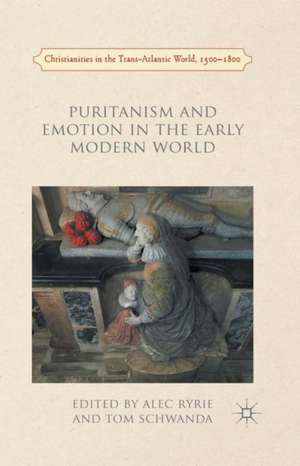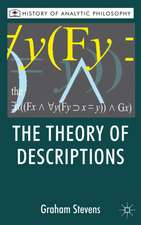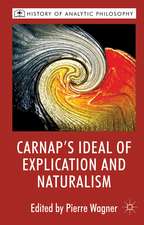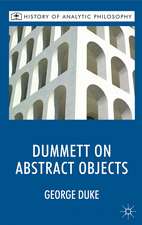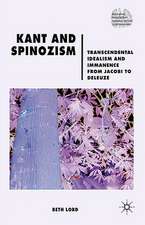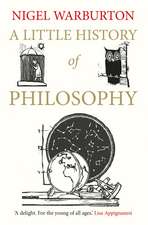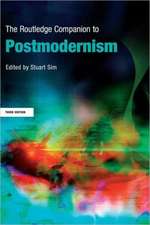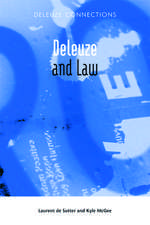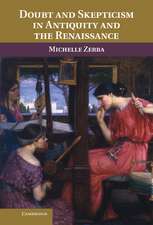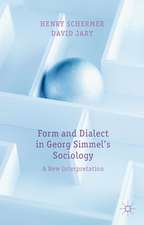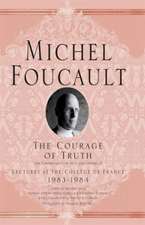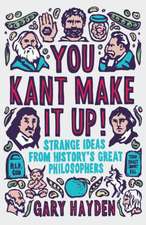Puritanism and Emotion in the Early Modern World: Christianities in the Trans-Atlantic World
Editat de A. Ryrie, Tom Schwandaen Limba Engleză Paperback – 2 mar 2017
| Toate formatele și edițiile | Preț | Express |
|---|---|---|
| Paperback (1) | 316.53 lei 6-8 săpt. | |
| Palgrave Macmillan UK – 2 mar 2017 | 316.53 lei 6-8 săpt. | |
| Hardback (1) | 528.30 lei 6-8 săpt. | |
| Palgrave Macmillan UK – 29 feb 2016 | 528.30 lei 6-8 săpt. |
Din seria Christianities in the Trans-Atlantic World
- 20%
 Preț: 691.28 lei
Preț: 691.28 lei - 15%
 Preț: 470.72 lei
Preț: 470.72 lei -
 Preț: 215.33 lei
Preț: 215.33 lei -
 Preț: 391.61 lei
Preț: 391.61 lei -
 Preț: 231.78 lei
Preț: 231.78 lei -
 Preț: 264.59 lei
Preț: 264.59 lei - 18%
 Preț: 789.65 lei
Preț: 789.65 lei - 15%
 Preț: 465.98 lei
Preț: 465.98 lei -
 Preț: 215.54 lei
Preț: 215.54 lei -
 Preț: 198.57 lei
Preț: 198.57 lei - 15%
 Preț: 596.36 lei
Preț: 596.36 lei -
 Preț: 483.70 lei
Preț: 483.70 lei - 15%
 Preț: 639.73 lei
Preț: 639.73 lei -
 Preț: 382.36 lei
Preț: 382.36 lei -
 Preț: 381.98 lei
Preț: 381.98 lei - 18%
 Preț: 780.52 lei
Preț: 780.52 lei - 18%
 Preț: 724.80 lei
Preț: 724.80 lei - 15%
 Preț: 635.96 lei
Preț: 635.96 lei - 18%
 Preț: 730.47 lei
Preț: 730.47 lei
Preț: 316.53 lei
Nou
Puncte Express: 475
Preț estimativ în valută:
60.59€ • 65.83$ • 50.93£
60.59€ • 65.83$ • 50.93£
Carte tipărită la comandă
Livrare economică 21 aprilie-05 mai
Preluare comenzi: 021 569.72.76
Specificații
ISBN-13: 9781349696550
ISBN-10: 1349696552
Pagini: 243
Ilustrații: VII, 243 p.
Dimensiuni: 140 x 216 x 13 mm
Greutate: 0.3 kg
Ediția:1st ed. 2016
Editura: Palgrave Macmillan UK
Colecția Palgrave Macmillan
Seria Christianities in the Trans-Atlantic World
Locul publicării:London, United Kingdom
ISBN-10: 1349696552
Pagini: 243
Ilustrații: VII, 243 p.
Dimensiuni: 140 x 216 x 13 mm
Greutate: 0.3 kg
Ediția:1st ed. 2016
Editura: Palgrave Macmillan UK
Colecția Palgrave Macmillan
Seria Christianities in the Trans-Atlantic World
Locul publicării:London, United Kingdom
Cuprins
Introduction; Alec Ryrie and Tom Schwanda
1. 'Light accompanied with vital heat': affection and intellect in the thought of Richard Baxter; Keith Condie
2. Thomas Goodwin and the 'Supreme Happiness of Man'; Karl Jones
3. The Saints' Desire and Delight to be with Christ; Tom Schwanda
4. 'Milke and Honey': Puritan Happiness in the Writings of Robert Bolton, John Norden and Francis Rous; S. Bryn Roberts
5. Affliction and the Stony Heart in Early New England; Adrian Chastein Weimer
6. Piety and the Politics of Anxiety in Nonconformist Writing of the Later Stuart Period; David Walker
7. Resting Assured in Puritan Piety: the Lay Experience; Kate Narveson
8. Emotions and the Development of Virtue in Puritan Thought: An Investigation of Puritan Friendship; Nathaniel Warne
9. Puritan Emotions in Seventeenth-Century Dutch Piety; Willem J. op 't Hof
1. 'Light accompanied with vital heat': affection and intellect in the thought of Richard Baxter; Keith Condie
2. Thomas Goodwin and the 'Supreme Happiness of Man'; Karl Jones
3. The Saints' Desire and Delight to be with Christ; Tom Schwanda
4. 'Milke and Honey': Puritan Happiness in the Writings of Robert Bolton, John Norden and Francis Rous; S. Bryn Roberts
5. Affliction and the Stony Heart in Early New England; Adrian Chastein Weimer
6. Piety and the Politics of Anxiety in Nonconformist Writing of the Later Stuart Period; David Walker
7. Resting Assured in Puritan Piety: the Lay Experience; Kate Narveson
8. Emotions and the Development of Virtue in Puritan Thought: An Investigation of Puritan Friendship; Nathaniel Warne
9. Puritan Emotions in Seventeenth-Century Dutch Piety; Willem J. op 't Hof
Recenzii
“The diversity seen in figures, subject matter, and context also extends to sources, which include treatises, casuistries, sermons, letters, journals, and poems. Those working with rare books will be pleasantly surprised by tidbits on writing, publishing, and translating practices. … it should be read critically, with a sensitivity to possible future developments.” (Jenny-Lyn de Klerk, Evangelical Quarterly, Vol. 89 (4), 2018)
“All of the essays in this volume adhere closely to puritan texts in their effort to prove the importance of happiness for puritans, and to reflect the concern of puritan writers that happiness should be properly understood. … All of the essays in this volume, and Narveson’s especially, merit attention not only by specialists in puritanism, but also by historians interested in puritanism’s place in the history of Christianity, and its contribution to the emergence of modern humanism and psychology.” (Amanda Porterfield, Church History, Vol. 86 (3), September, 2017)
Notă biografică
Alec Ryrie is Professor of the History of Christianity at Durham University, UK, and author of books including The Age of Reformation (2009) and Being Protestant in Reformation Britain (2013).
Tom Schwanda is Associate Professor of Christian Formation and Ministry at Wheaton College, USA. His books include Soul Recreation: The Contemplative–Mystical Piety of Puritanism (2012) and The Emergence of Evangelical Spirituality In the Age of Edwards, Newton and Whitefield (2015).
Tom Schwanda is Associate Professor of Christian Formation and Ministry at Wheaton College, USA. His books include Soul Recreation: The Contemplative–Mystical Piety of Puritanism (2012) and The Emergence of Evangelical Spirituality In the Age of Edwards, Newton and Whitefield (2015).
Textul de pe ultima copertă
The stereotype of the emotionless or gloomy Puritan is still with us, but this book's purpose is not merely to demonstrate that it is false. The reason to look at seventeenth-century English and American Puritans' understanding and experience of joy, happiness, assurance, and affliction is to show how important the emotions were for Puritan culture, from leading figures such as Richard Baxter and John Bunyan through to more obscure diarists and letter-writers. Rejecting the modern opposition between 'head' and 'heart', these men and women believed that a rational religion was also a deeply-felt one, and that contemplative practices and other spiritual duties could produce transporting joy which was understood as a Christian's birthright. The emotional experiences which they expected from their faith, and the ones they actually encountered, constituted much of its power. Theologians, historians and literary scholars here combine to bring the study of Puritanism together with the new vogue for the history of the emotions.
